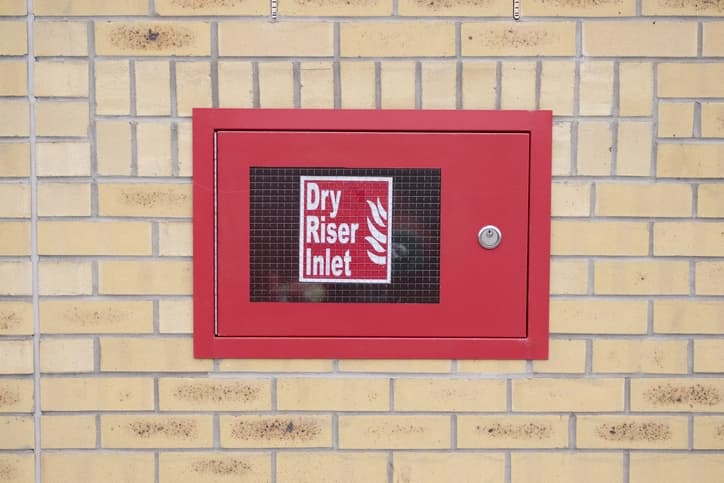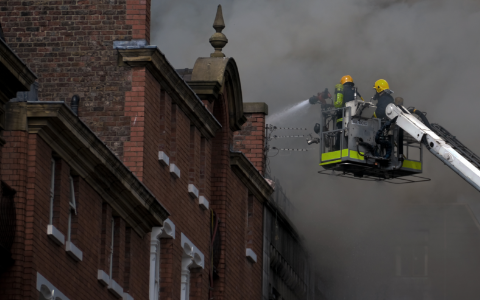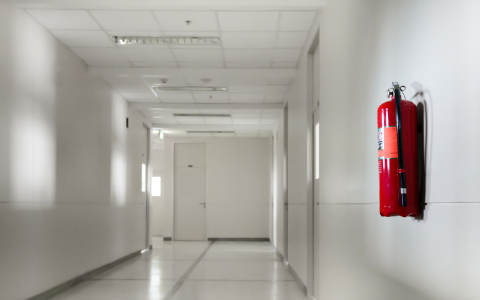Dry Riser & Fire Hydrant Testing
What is a Dry Riser?
Dry Risers are probably the most important fire safety system installed in multi-storey buildings over 18 metres high. They deliver large volumes of pressurised water to the upper floors, to be used by Fire & Rescue Services in the event of a fire.
It is vital that Dry Risers are well maintained and fully operational. Unfortunately they are often neglected, or vandalised, with their glass security doors broken and the important valves inside damaged or inoperable. So it is essential to have the system checked on a regular basis, to ensure it can deliver high pressure water to the right location, should a fire break out. The Fire & Rescue Service rely on Dry Risers in fire situations where every second counts, and if they are inoperable peoples lives can be at risk!
At Fire Safety Solutions NI, we use our own full size Fire Engine to carry out the annual pressure test. This is essential to get the required operating pressure of 12 bar at the inlet. The system also requires a thorough inspection every six months. Our experienced fire safety engineers can complete the testing and maintenance at a time convenient for you. As with all of our services we can supply risk assessments and method statements for the required works on request.
Dry risers should be tested at appropriate stages during the the construction phases of a new building. We can facilitate pressure and full flow tests using our own full size Fire Engine which is essential to deliver the required pressure and volumes of water for the flow test. The dry riser flow test is also required to flush the system, confirming there is no debry or blockages in the pipe assembly. Our experienced fire safety engineers can complete the testing and commissioning, supplying the required inspection reports, evidential photographs & certification. As with all of our services we can supply risk assessments & method statements for the required works on request and all of our fire safety engineers have valid CSR cards for site work.
Dry Risers are inspected and pressure tested to 12 bar for a minimum duration of 15 minutes. All inlets and outlets are then checked for leaks. If any valves or components have to be repaired or replaced a further pressure test will be carried out before certification is issued. Service labels and appropriate paperwork is then completed, along with fitting of anti tamper devices, then the system is fully certified. A detailled inspection report, evidential photographs and certificate will then be provided electronically.
This test involves a visual inspection and dry valve functional operation test. Any missing or damaged items are replaced and the system lubricated where necessary. Service labels and appropriate paperwork is then completed, along with fitting of anti tamper devices, then the system is fully certified. A detailled inspection report, evidential photographs and certificate will then be provided electronically.
Private fire hydrants require a static pressure and flow test annually by a competent person. Our experienced fire safety engineers complete the testing using our digital flow meters and static pressure gauges. We use a digital platform to prepare detailled inspection reports including evidential photographs. Large sites containing multiple hydrants can be mapped out and we can provide detailled reports with location maps on request. As with all of our services we can supply risk assessments and method statements for the required works on request.
All our tests are completed to the current British Standard Code of Practice BS9990:2015 and are vital in order to keep your premises safe, secure and legally compliant.






